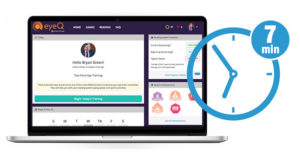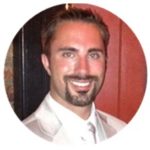
This is the podcast where I’m bringing to you the very best people that I know to give you the insights and inspiration, their journey, the things they’ve learned on that journey to give you the greatest chance at building a real business, not just a glorified job. That’s a business that can work harder for you than you have to work for that business but it doesn’t come easy. It’s always a work. You’ve got to study. You’ve got to learn. You’ve got to have mentors. If you pay attention and if you’ll experiment with some new thinking, you’ll listen and you’ll watch the people that have already made it ahead of you, you’ll have a tremendous opportunity, a tremendous likelihood of building a really great business. One that you could sell, one that’s a standalone asset, and that’s what the show is all about.
In this episode Aaron and Jeff discuss the strategies used to make massive deals in business. Emphasizing actionable tactics to do business “better, faster and cheaper” You don’t want to miss the wisdom shared by the incredible Jeff Flamm.
Listen To The Episode Here
I Only Hit Home Runs with Jeff Flamm
I have so many terrific people that I get to meet as I go around the world. Some of these folks, you just scratch your head and go, “What day of school did I miss that they were there?” Today’s guest is no different. Today we have Jeffrey Flamm. He’s done so many things but currently, he’s the founder of a company called Infinite Mind that produces a really cool reading and brain enhancement software that’s called eyeQ. I’ve met Jeffrey on a number of occasions. We’ve spoken together at programs. We’ve spent time supporting some non-profit causes. He’s one of the fellows that I just admire more than almost anybody else I know. I’m really glad to have you here today, Jeff. Welcome to The Unshackled Owner podcast.
Thanks, Aaron. Thanks for the kind remarks too.
They’re not just kind. They’re just true. You’ve got such a great resume. There are so many things that we could say that would build you up and put you way up high in a pedestal. I’m going to maybe make a few faltering attempts to get this right. This is a small part of what I really want to talk about but just so that listeners understand. First of all, how would you exactly describe the business that you sold?
When we started it, it was an HMO management firm for Fortune 500 companies so we could manage up their 400 HMOs they were offering around the country. It morphed and evolved into benefits outsourcing where we became their benefits department for a lot of big companies.
It was actually filling that gap in the HR department and you became indispensable to those companies, which creates tremendous value. You started from nothing, built that up, made some money, and started becoming a very sophisticated investor. You’ve done a lot of real estate investment. You have a major real estate investment in the Salt Lake City area. Isn’t that right?
Right.
A very nice A-plus class property. How would you describe that place?
It’s a 120-acre business park that’s built with fourteen office buildings and ten restaurants, a hotel, the best gym in the state health fitness club, and then also a Montessori school. Before we built one thing on 120 acres, we designed the whole thing with exactly what any business guy would want in a business park and designed and built it. We’ve been ranked the number one business park in Utah for the last seven years running.
You’ve got this business the Infinite Mind and eyeQ. What does eyeQ do?

Jeff Flamm: What eyeQ does is it’s brain training but it focuses on learning to read faster.
What eyeQ does is it’s brain training but it focuses on learning to read faster. People say, “Is it a speed reading program?” That’s one of the huge benefits of it but it’s very, very different than most what you’d call speed reading programs that are just pacers. They get you to read faster. This one, every day has left and right brain trainings. You do imaging, reading, imaging, reading for seven minutes a day. Within eight weeks, we’ll usually take people from reading about 220 words a minute to 700. The important thing is we raise their comprehension from usually about just around 50% up to about 80% comprehension but reading three times faster. Our goal is to make people really great readers and critical thinkers. You become a critical thinker when you’re using more of your brain.
What’s interesting about eyeQ is we had two university studies done on it in the departments of neuroscience. One at Caltech in Pasadena and one in Salt Lake City with 30 kids. In just eight weeks, they showed it increased your brain activity and function by fifteen times. Our goal is we put it in schools and we’ll raise national test course in a school 20% to 25% in just one semester. Whether that’s ACT test, SAT, people taking the GMAT, LSAT anything like that. If they want to have higher score, they need to use our product. It only takes seven minutes a day. That’s what we’re all about is really helping people learn to be great learners for life. Once you’re out of school anymore, you’re not done learning. Everything is changing so quickly. You’ve got to be learning every day.
I wanted the listeners to hear of these few things. You built this big HMO and benefits company. You’ve got this big real estate park plus with all the other real estate stuff you’ve invested in, plus you’ve got this other new wonderful tech company that’s making a giant difference for people. Now, that I’ve set the stage for people that they understand who I’m talking to today, Jeff, I’m just going to ask you some questions. First of all where did you grow up? Where were you a kid?
I grew up in Utah. We had a ranch in Wyoming so I spent my summers working on a ranch.
You grew up in Salt Lake or did you grow up in the country?
I grew up in Salt Lake in a town called Ogden, Utah with my older brother.
Up in Ogden, Utah, up the home of Weber State.
You’re up in Ogden and then you had this other place in Wyoming. When you say you grew up working on the ranch, was that your grandparent’s ranch or your parent’s ranch?
It was my grandfather’s ranch and then later it was divided among my dad and two other uncles. When I sold my company, I bought up the other uncle’s so it’s all in our family now.
Now, it’s your ranch?
Right.
This is out what area of Wyoming?
It’s southwestern Wyoming, real close to a historical site called Fort Bridger with Jim Bridger, the first trapper in the west. He had a fort and traded with the Indians. We’re just on the same river that runs through Fort Bridger just twenty miles upstream. It’s just at the base of the high Uinta Mountains. It’s a beautiful country.
First of all, in Ogden, were you a city kid?
No, out in the country. We have a country place and horses and animals in the ranch in Wyoming. In fact, I always kid people because I got my PhD in ranching. My dad told us when we were growing up and working there he said, “Once you’ve done a thousand dug, a thousand post holes, you get your post hole digger degree.” I have my PhD in ranching by high school.
There’s a romanticized image of ranching where you’re mounting up on your beautiful horse every morning and riding out. A lot of cowboy work is putting up new fence post.
I would say that’s 60% of running a ranch is fences. The rest is irrigating and then doing hay.
You grew up with all that. Did you go through a period as a youngster where you thought, “This ranch thing is fine but I want to do some other cooler stuff in town?” Did you go through a period where you thought, “Maybe this ranching thing is not for me”?

Jeff Flamm: It’s almost embarrassing to admit but when I graduated from high school, I didn’t have a clue what I wanted to do.
I knew I didn’t want to stay on the ranch. The winds up there are brodie. The wind blows all the time. It’s pretty brutal up there. What’s interesting, Aaron, it’s almost embarrassing to admit but when I graduated from high school, I didn’t have a clue what I wanted to do. I just went on to college. I changed my major three times. I went from Medicine then my doctor talked me out of that and said, “You make more money elsewhere and have more time with your family.” I decided to be an architect and I studied drafting and design and everything. I went out and interviewed architects and found out they weren’t making all that much money so I changed to business. What’s interesting is those things I studied have come back into my life and I have used them throughout my life especially all classes I took on design. Now, I build business parks and a big resort in Hawaii. I’ve really championed the design and the build of those places. I work with the architects and the designers. It’s interesting how much that studying in college has come to be a huge benefit to me and throughout my career.
It sounds like that story of Steve Jobs when he talked at Stanford about taking the calligraphy classes up at Reed College in Portland and how they gave him an appreciation for fonts and types and points, the way you separate the letters. That’s why we have all these beautiful fonts. Not because he studied computer design or anything but because he studied calligraphy, he was able to apply it in a different way than people. It’s really interesting. We didn’t even mention the place in Kauai. It’s a big Marriott resort. Isn’t it?
Right. It’s an Autograph Collection, which is the real high-end, really nice unique properties. They’re not just the standard hotel, they’re resorts.
You’re just a kid down there and you went to Weber. You changed your major. You did all these things. How old were you when you got married?
I was 25.
You’ve been married for a number of years now.
It’s our 40-year anniversary this year.
Happy anniversary. Did you meet at college? Where did you meet your sweetheart?
No. We have five different people tried to line us up. I wasn’t interested in line up so I kept saying no, not realizing they all were trying to line me up with the same girl. Fortuitously, I just met her at a play she was in. I had a date. We went to this play and she was the lead. I saw her name on there and then recognized that two people who were trying to line me up with. She heard I was in the audience. She looked out behind the curtain and saw me. She said she’d never really felt jealous before and she felt that. She’s looking at me and seeing this girl with her head on my shoulders. She said she felt this tremendous jealousy. We met that night, shook hands. I called her that night and asked her out. We went out the next four nights and ten days later got engaged.
It was meant to be. Forty years of marriage to this and it was one of those deals where it just clicked and I can relate to that. As soon as I met Michelle, I was done with everybody else. We got married just a few months after we met and 30 years for us. When you met that right person, did you make any commitment to each other? Other than the normal marriage commitments, was there a way that you said, “Let’s go into life in a certain way, we’re going to engage in a certain direction?”
What we did is have long, long talks trying to understand where each other’s heads were in that first week. We would spend hours together just talking about life and what we wanted, what our dreams were. I think that’s important to do in any kind of relationship even in business. When you’re choosing a business partner, you need to understand that person, what their goals, their heart is, and make sure you’re compatible. If you’ve got different ideas of what success is and the direction, you’re not going to have a smooth sailing. I’m here to tell you. I think it’s important to really know people’s real hearts before you get into a long-term relationship.
Having a happy, long-term, committed marriage like that, what effect do you think that’s had on your business’ success?

Jeff Flamm: I think business success is all about really providing for your family.
I think business success is all about really providing for your family. It’s out there to figure out, “How am I going to take care of this wife I’ve married?” Now, as kids come into the picture, “How am I going to take care of these kids to make sure I’m a confident father and then I’m a good provider and help them get to school and so that someday they can be productive citizens and happy, and create happy families of their own?” There’s a lot of pressure to do that when you first get married and I think it’s a scary thing. I remember when hearing when my wife was pregnant, I was in panic mode. “I’m in this for the long haul now.” I don’t know what I’m going to do. I remember there was some instant panic. It’s interesting as life goes along. I don’t care to what power or what people do, I think when you meditate and really pray and think about things, the universe opens up to you and you get wisdom. You’re given direction in life. I did that a lot. Whenever I came to a crossroads, I would take time to go be by myself for sometimes a day or two. I’d go camping or somewhere where I could just be alone and reflect on things and then, it would come to me. I would just start writing. I would write down all the thoughts that came to me.
I’ll tell you a funny story. This will be meaningful to most listeners because it’s an important principle to know. When I sold our company and we have this money and we built three office buildings for our own company, Health Benefits America. I was approached by the contractor who had built them and said, “Now you’ve sold your company, I’ve got some land over here. Should we buy it and develop this business park?” I said, “Sure.” While we were doing that, he had invited us on this horseback trip up in the Wind Rivers of Wyoming. It was a five-day fishing trip. You go in on horse as well. I’m an ADD guy. I grew up fishing so I love fishing but I can do it for about one hour and then I’m ready to do something else. I took all these business books because I have this fast growing company. I was writing down all these ideas in the business book. Then the really profound thought came into my mind, “You need to put your business aside and figure out how to improve your family.” I was trying to figure out how to make it a better company and be a better leader. It said, “Focus on your family and everything else will work out in your life.” It was just a profound thought. I started writing down all the things about my family and it came down as a sure inspiration to me of how I have handled allowances, what kinds of things to require my kids to do, and how to be a better father and spend a one-on-one time with them. I came up with this whole plan and I was up there for five days. I had plenty of time to think about it and write down and refine it.
When I came home, I said to my wife, “Here’s what I feel we should be doing.” When she heard me talking about it, she could tell I was very passionate about it. We did that and we were united on that effort. As I look back, that was a really pivotal point in my family because I had kids that were now starting to hit teenage years all the way down to little kids because we have six kids. It was really a changing point in my life to teach my kids and now focus on my kids. I really changed my direction. As I focused on my family and had more unity at home, happier life at home, happier family by doing the right things there, business followed. I just give that as a tip to the listeners is don’t be so focused on your business you lose your family along the way because then you really have nothing.
If you go back and read Think and Grow Rich of Napoleon Hill, he talks about all the great men. In the day he was writing, it was all men who are running businesses. He talked about there was always a strong support of woman behind them. One of the big mistakes he saw was that as men finally really peaked out and they had become successful, wealthy and captain of industry, a lot of times they would decide to trade that woman in on a younger model. He said almost invariably those men began to fail after that. My experience has been that when my wife and I are in sync and pulling in the same direction, I feel almost invincible. If one little thing is off where I think she’s ticked off at me for something, I can hardly focus on anything else. Again, this is not saying right or wrong on them, just thinking aloud. I meet people regularly who have put off marriage and they’re in and out of relationships, some meaningful, some just very brief. Those people they can make money but it seems they have a hard time building anything really long lasting and solid. I don’t know if your personal life is reflected in your business life or something. It seems when you get settled in, you talked about being a good husband, being a good provider, being a good dad, that made you want to build and go in a direction and build something sustainable rather than just make a quick deal here, run across the world, do another deal there, run over to South America and go play around. How many people are delaying the real gratification of life, Jeff? How many people do you think by selfishly indulging themselves well into their 30’s or 40’s?

Jeff Flamm: It’s just those little few moments getting away from your cellphone and giving your kids undivided attention.
There’s a lot that still haven’t figured that out. By the time they do figured out or sell their company or have the luxury to spend more time at home, by then it’s too late. I do really think by the time kids are fourteen or fifteen, they’re pretty much established where they’re going. It’s pretty hard to change their direction at that point. I think it’s just important that you spend that quality time. There’s a really great, free, I don’t know if it’s now, but you go in their website Devoted Dad and they have a daily tip they send to dads. I get one every day on my cellphone. It’ll give you a little tip to do with your kids. It only takes a few minutes every day that will really connect you with your kids. I highly recommend that is to look for Devoted Dad. The company that’s started, it’s a non for profit called The Gentlemen Project. It started out teaching boys how to be a gentleman and how to treat women with respect. It branched out for dads for all their kids. They partnered with another group and they have a little text called Devoted Dads. I love it. Every day, it sends me things and I forward them onto my boys and say, “Try this with your kids.” It’s just those little few moments getting away from your cellphone, away from your computer, and giving your kids ten minutes of undivided attention. That will really change the results of your kids long-term. I think it’s brilliant.
The parenting is such a joy, it’s such a pleasure, and it’s such an enigma for a lot of people. My wife and I are self-made. We didn’t graduate from college. We always told our kids, “We’ll help you in lots of ways. We will not pay for tuition for college but we promise to pay for therapy because I’m sure we’re messing you up somehow.” Let me just ask you this question because I think this is a big challenge for a lot of people. The things you’ve done are big. You built three office buildings to house your medical benefits company. You’ve built this top of the line resort and now you’ve got a 120-acre office park. These are not small endeavors. How do they give themselves permission or even come to an understanding that it’s possible to not just play small? You must have started fairly young with these benefits company and said, “We’re going to swing for the fences. We’re not just going to do something locally here in Ogden or Salt Lake but we’re going to do something a little more significant.” I’m sure you matured along the way. You had to have been focused on a large outcome from the beginning or is that wrong? Am I misguided on that?
I tell entrepreneurs, “You’ve got to go into a business you know and understand.” Go get trained by somebody else and let them pay your salary a few years until you learn that business. Then figure out a way you can do it better, faster and cheaper. With technology, every year things can get better, faster and cheaper. There’s a group in Salt Lake, a guy named Josh Coates, that was a programmer and he started getting into figuring out how to make companies better. He finally decided, “I’m going to do this on my own.” He worked for companies, going in and restructuring them with technology, making them better in everything. He decided to do that. He went into business of going out and finding what company have 80% or more market share. He went in and built software to do it better, faster and cheaper than they did and went out and took away their biggest clients and then from there took over. His latest one that he’s done is called Instructure and their primary product is called Canvas and they are an education management system. They sell their education and their big competitor or the one that have market share was named Blackboard. Blackboard was built twenty years ago. It didn’t have all the ease of computers and cellphones and apps to do everything really easily but they have made so much money in that market share they didn’t think anybody could ever beat them.
Josh came in, raised a bunch of money, hired a bunch of programmers, and they built the best learning management system out there by far. It was so good and so intuitive and user-friendly and had all the metrics for schools. The parents could go in and see what kids are doing, what their classes were in, if they’ve done their homework, what their grades. Kids do write what was there in one app, what their classes were, what their homework, assignments but he made it so much more user-friendly. These guys went it and sold Harvard and Stanford and Brigham Young University. They sold ten schools their first year and now they have 1,700 schools. They’ve been out in the market maybe three years. Blackboard’s stock tanked. It went down by 90% and a venture capital company came in and bought their stock and brought up, took them off Wall Street. They fired everybody at the top. They’re rebuilding and trying to maintain what customers Blackboard had and said, “You stay with us. We’re going to build even something better.” It’s painful to change. There’s a lot of learning curve. They’ve talked in a lot of clients into staying while they build one. It just shows everyone you’ve got to stay current on what’s happening. If you sit on your laurels very long, somebody’s going to find a way to do it better, faster and cheaper.

Jeff Flamm: If you’re not reading a book a week as an executive, you’re going to get passed by.
That’s why I’m all about reading. If you’re not reading a book a week as an executive, you’re going to get passed by because you can’t see what’s coming down the pike. So important you read every book. You had asked me Aaron, “What’s your favorite book you’d recommend?” I have posted this on Facebook to my couple hundred friends on there, maybe 300 to 400 friends that I have limited on Facebook. I said, “Read this book or listen to it on . It’s called The Accidental Superpower by Peter Zeihan.” It talks about in the next twenty years how America will rise to be the pre-eminent, strongest financial player in the world by far. He tells all the reason why that’s going to happen and which countries are in deep trouble right now, which ones are going to fold. Financially, they can’t make it. We know that’s happened in Greece and some other places. It’s going to happen much broader in the future as money tightens. He talks about that. I highly recommend everybody that’s in business, listen to that book. I’ve listened to it three times now on Audible because the principles are so keen. It really helps you look to the future and say, “Where are jobs going to be in five or ten years?” They say 70% of kids in grade school right now are going to work at a job that doesn’t exist right now.
Everything is changing. As we can see with Amazon, Uber, things can change so quickly. We need to be looking ahead for us and our kids and say, “Where should we be advising our kids? What jobs should be they looking at? What industry should they get in? What education should they get? Where are they going to be the most successful in the future?” If you’re not doing that as a parent, kids go to college, they get a degree in economics and find out no one will hire them. They’ll get a job in communications or something but where it’s moving right now is people need to be in, we hear it all the time, at engineering. They need to be focused on engineering degrees, computer science degrees, things like that because that’s where it’s moving. I highly recommend everybody listen to that book or get a copy of it and read it. You’ll want to read it two or three times. It is that good. I had over 100 people send me emails that it’s the best book they’ve read in the last ten years.
As the world gets more and more technologically savvy, we have a computer in our pocket with us all the time, remember we’re talking here to people who are owners of companies or aspiring owners of companies on this podcast, do you see companies that are going to build like you had with three office buildings full of people? Or do you see companies becoming more and more niche, small, nimble and highly specialized? We are seeing disruptive companies that are very small but move very fast. As a matter of fact, another book that I love that just came out, which is called Be Like Amazon, they say it’s not that the big fish are eating the little fish. They say it’s the fast fish are eating the slow fish. If you look into your crystal ball, how do you see businesses developing?
I know that everybody is trying to become better, faster and cheaper. One of the key things is getting people who can learn quickly, that they’re teachable. Everything is changing so quickly you’ve got to be teaching people new things all the time. I prefer hiring younger people that are nimble and growing the company and outsourcing areas that you’re not a specialist in. I have gone from a 1,400-employee company to where I have six employees now with Infinite Mind. We have outsourced most things. All of our distribution when we have product was outsourced. It’s now online so we don’t have to do that anymore. Our call centers are outsourced. Most of my programming was outsourced. We brought it in-house now and I found out that’s the best way to do it. We spent a lot of money in those things.
Can somebody still become wealthy like you did with your benefits company? Can you see that somebody with a six or ten or fifteen-person company can really play a big game?
Yes. The thing I like about outsourcing with vendors and to get you to grow quickly is you give them 90 days or a six-month contract and see what they do. If they’re not just knocking it out the park, you find another vendor. It’s really hard to do that internally with employees to let people go when they’re okay. They’re not great. They’re okay at best but they’re not bad enough you want to just fire them. I’m a softie. I hate to fire people. It’s much easier for me to go to an outside vendor. We come up with what they’re going to accomplish, set goals, and measure against that. If they’re not getting the numbers where we could show an ROI from using them, we don’t use them. They know that so they are working hard to hit those numbers for us. I would outsource everything. Keep the company small. There are so many new things opening up. Once you have money and knowledge, opportunity knocks every day. We used to hear the saying, “Opportunity knocks once.” It’s not true in today’s world. If you have the knowledge and the resources, you can see new ventures you could start. If you’re good at business, you could have five more businesses in the next few months that could make money for you. You just have to have those two things. You’ve got to have the knowledge in that business you’re in and then have some financial resources. People need to be saving. If they want to do their own thing, they’ve got some capital to start with.
I meet people all the time who have somehow made money and then these opportunities come to them and they’re emboldened because they can jump in the game. I appreciate what you just said about saving, but when somebody is early stage and they’re maybe nervous, maybe they’ve never had that home runner even a good double. They’re thinking, “I need to be super conservative and play small and hold on to all my marbles because if I lose them, I don’t know how I’m ever going to get them back again. I don’t know if I should invest in this piece of rental house. I don’t know if I should spend the money on this CRM, the software to manage my clients.” What advice would you give to somebody who really is that individual who is working out of the spare bedroom or they’ve got a little office, a little 400-square foot office some place and maybe they’ve got a couple of virtual employees, nobody that’s on W-2s yet? What advice do you give to somebody who is just afraid to step out boldly into the marketplace?

Jeff Flamm: That comes from reading I think and reading good things, getting ideas.
There’s a lot of like that. A lot of that is confidence. Being a confident person that you can do something. Again, that comes from reading I think and reading good things, getting ideas. Whenever I read a book, I keep a notepad. I just take notes as I read or I underline at the book and write it in the front cover, “Great marketing idea on page 23,” or “something I should do in my life.” I’ll put P next to a personal and something that I wanted to do. I read and that gives you confidence. I started small. When I was 25 after we got married, I bought an old home in downtown Ogden. I got it for $40,000 but it was one of this big old homes in the downtown. I just put a stairway into the basement and a stairway to upstairs and made it a triplex so we were able to live there free on the main level from the rents from the other two. That gave us money to save. Then I bought another one and did the same thing. I kept buying these places and convert them into multi-tenant properties. It was zoned for that so I could do that. In eight years, I did seven different properties and when I sold them all, that gave me the money to start HBA. I had $390,000. What did I learn? I learned real estate, how to make money in real estate and I learned how to save and take that money to real estate and then it was able to launch me into this other business that I wanted to be in where I know I could make much bigger money.
You learned something else at least it occurs to me. There’s often greater value in one to many than one to one. You took one house and made it into three houses. You said, “I don’t have one place. I have seven places.” All of a sudden, you’ve got 20 renters I guess if you’re living in one of them instead of seven renters. How great is that? Truthfully, the rent wouldn’t be dramatically different for one floor of the house versus the whole house.
That’s right. It wasn’t much more. What’s interesting is your rents usually go up with inflation by 3% or 4% a year so it’s a great edge against inflation.
The more you can multiply your same effort, the more that you look and say, “I could do this but I could also do it a little bit better and multiply it.” Like saying, “I could have rental house or I could turn that rental house into a triplex.” Just thinking a little bit bigger. You’ll be surprised. I remember the very first time, Jeff, I flipped a house. This is back in 2004 maybe. Everybody could make money in real estate in the boom years before the crash. Somebody from our church congregation was moving. They told me and I bought their home. It was a house that had been a pretty showy house back in the day but now it seemed a little dated, a nice-sized home on three acres but the neighborhood was zoned for one-acre lot. We bought the house. We rehabbed the house, brought it up to a little bit more modern look, and divided the place into three lots. We’re able to sell the house on an acre and then two other one-acre lots that homes were developed on. I made $250,000, $300,000 on that after it was all said and done. I thought, “How the heck did I not know about this? How did I not know you could do this?” It was as easy as pie and you made a quarter million dollars. There have got to be other things besides just learning that you could flip a house. There have got to be a lot of ways that are all around us every day that people just don’t know exist.
I think with a lot of people were making just in finding some product where they can buy it out of China or have it manufactured and then sell it online on Amazon or just on Craigslist or whatever. There’s a lot of people that start that way and have grown businesses that have become very substantial. You have to do something you feel comfortable with and go out and start trying. Once you got a little money then you can look at other opportunities.
The opportunities as you say are all around us. There are always people that are searching for money, if you have even a little bit of money. You don’t have to be wealthy. If people know you could put your hands on $50,000 or $100,000, people will start to knock on your door. If it’s more than that, you’re going to get more and more interesting and probably more and more crazy ideas. Has there ever been something really crazy that somebody came to you with and you thought, “I can’t even believe somebody came up with that idea?”
Yeah, all the time. They’re pretty smart. They’re somewhere where they’ve noticed it a need in their own life or they’ve seen it in the company they worked where there’s a need. They gone out and researched and see if someone else is doing it. It’s like when I started Health Benefits America and we said to my dad, “We’re going to go build this big database with all the HMO information in it so we can go into a company and tell them everything about every HMO in every state and make the decisions for them because they don’t know anything about it.” They’re so under resourced in those companies because they are a cost center, not a profit center so they don’t give them a lot of money. They’re doing everything manually instead of using computer programs. They’re handling every form of enrollment form and every form individually because they’re not computerized. You just find something where somebody’s doing it in a very backwards way and then you come up with a much faster, better way. When I told my dad what we’re going to do, he goes, “This was such a good idea somebody would already be doing it.” He was really our biggest naysayer. When we ended up hitting the home run, he was pleasantly surprised.
The idea is to look for something that’s being done poorly or look for an underserved market. Some place where it’s a pain in the back to get something done and say, “How could we make this easier on people?” Because this got to get done. The work’s got to get done. The old saying, “Build a better mousetrap and the world will beat a path to your door,” I think that’s what happened to you with your benefits business. All of a sudden, you became wildly successful because you just made it easy. You made it easy and painless.

Jeff Flamm: eyeQ by Infinite Mind
We’re back with Jeffrey Flamm, founder of the Infinite Mind, the creators of eyeQ, the reading program that not only helps you read faster but retain more, make your brain sharper, more nimble or agile so that you can really be consuming the content that you need and you need to retain to be competitive in today’s market. Jeff’s got all the trophies out there. He’s built the huge office parks and he has won the awards. He’s got the top notch resort. He’s made his bones intact in health. The biggest markets out there you think about the hospitality, healthcare, technology and Jeffrey Flamm’s a leader in that. Most nice, unassuming, humble guy you’d ever want to meet in your life and even in the things that are a little bit on the grand scale. If you ever had an opportunity to visit his home in Salt Lake, you’d understand what I mean. It’s not understated. Is it, Jeff?
Yes. It’s a historic home.
You even told me that your wife fell in love with it. You mentioned to me one time that it felt a little bit too much like being a museum. What he does there even with his grand home is he opens his property up to all kinds of charitable groups to come in and use this beautiful facility to make the community better and help people. It’s just who Jeffrey Flamm is. I’m so delighted that he’s spending time with us today. Jeff, you did mention this book. Usually the first question I say is what’s a book you’d recommend? You recommended The Accidental Superpower, which I’m going to make a commitment to you. I’m going to get that book today. Do you prefer to read or to listen?
I do both. I try to read one book a week because I can read it when I’m on planes and stuff. In my car, I listen because I’m driving all over all the time. Most of these books that are twelve hours, I’ll get them done in a week. I try to get one done a week on Audible. Even though I have an Audible once a month thing, I’m always buying two or three a more every month. I keep listening. I like listening to it. I usually like reading because I can write, take notes. It’s so fascinating and it resonated with me that I could remember everything I was listening to. After a few days or a few weeks, you forget the details again so I went and listen to it again because it was so profound.
Everyone, go out and get The Accidental Superpower. Let’s find out where we’re headed in the future. Do you have a quote or a song lyrics something like that that you love or that is a rallying cry or mantra for you?
Yeah. In 2008, when the economy crashed and we had this big resort went up in Hawaii $120 million in phase one. We were building real high-end residences, condos that were for sell. We had 30 somewhat contracts out there but when the economy changed, people start walking away from their contracts. A lot of them fight legally to get out of them. We were in a panic because here we have $130 million worth of buildings going up and nobody’s buying them. I had sleepless nights. I was so stressed that one of the guys that comes and he takes care of our plants in our house, he saw that I was stressed. He brought me this plaque to hang up in my bathroom. It says, “Life is not about waiting for the storms to pass. It’s about learning to dance in the rain.” It changed my whole perspective. I had to still go through even though things were tough and smile every day and make life still meaningful and know that things work out eventually, not always how we want. Sometimes we go through rough times but it makes us better people. I think it’s part of life experiences that really hone us and then make us better people is the tough times. We learn more from the tough times than the good times. Life is not about waiting for the storms to pass. It’s about learning to dance in the rain.
It’s a great quote and that leads us beautifully into the next key that I always ask people because you don’t get to where you are, you don’t get through life anyway but you certainly don’t reach a level of success, Jeff like you have, without having some bumps in the road. If you look back, is there any decision in retrospect you think, “I wish I would have handled that differently. I wish I would have done something differently,” that we could pass on to these other business owners out there so that if they find themselves faced with a similar situation, they might have that cautionary tale from Jeff Flamm?

Jeff Flamm: Get the second set of eyes to look at it, review it, and make recommendations. It’s the best money you’ll spend.
I think probably this is one everybody can use. If you’re starting a business, you end up having to have legal documents drawn up. If you’re doing big contracts with customers for example, you ever land a big account, I always have one law firm draw up the contract and then I’d hire another law firm that I had a connection with and call them and say, “I want to pay you for one hour just to review this document.” Their rate was $300 an hour, $350 whatever. I’d say, “I want you in one hour to review this and tell me if you see any loopholes.” In a contract, if you ever go sideways on them and you have somebody suing you or taking you on, they’re going to have attorneys that are going to try to rip that contract apart and find any holes in it. That contract can become worthless if it wasn’t well-written. What’s interesting about attorneys, when you have the second attorney review it and you’re paying them to do it, they want to show they’re smart. That they’re smarter than your first attorney because they want to win all your business. They’ll spend who knows how many hours on it. I only pay them for one but they come back with a bunch of ideas on what we should change, the wording on the contract or add this disclaimer or something. They’ll come back with several ideas and it makes that $300 the best $300 you’ll ever spend. Whenever you’re doing important contracts, not every attorney remembers everything. They knock out a lot of stuff and a lot of it is boilerplate. A lot of it is not well thought through because you’re maybe a little company and they have big clients so they just knock out something for you. Get the second set of eyes to look at it, review it, and make recommendations. It’s the best money you’ll spend.
Jeff, if people are interested in eyeQ or I guess in just learning more about you, connecting to you in some way, is there a good way for them to do that? Once you explained that, is there any sort of final counsel or advice that you would just give to people who want to build a real business, who want to build something that transcends them? Just a little bit of counsel as they go out there and face their day.
I would just say my mantra is to always have a smile on my face. My thing is I have a joke every day and it keeps me smiling. I think attitude determines altitude. If you have a good attitude, you can accomplish anything but if you’re just always grumbly and growling and the world’s caving in, if you have that kind of attitude, nothing works. Just try to be positive in everything you do.
If they want to learn more about eyeQ?
Just go to our website, www.InfiniteMind.io. When they go on there, there will be a link that says free demo. Have them click on the link and try it. They’ll see how fast of a reader they are and then in just seven minutes, they’ll see how much faster they can be just doing it once.
There’s a challenge for you guys. Go out to Infinite Mind or eyeQ and do the demo. Let’s see if your reading improves just from a quick little demo. Ladies and gentlemen, I’m so glad you chose to spend some time today here on the Unshackled Owner podcast with my great guest and really a lovely man and a dear friend, Jeffrey Flamm. Jeff, thanks for being here with us.
Thanks, Aaron.
For all the rest of you out there, as you go out into your day remember that if you learn the best practices, if you learn the recipe and there is a recipe for success. Every single person I’ve ever met that’s reached success multiple times has learned that you do this part and this part. Learn the recipe. Learn the best practices. Fill your mind with good reading. Be thinking. That little bit 15% greater knowledge makes you the expert with everybody that comes around you or opportunities will come your way. It’s getting this extra information. It’s applying yourself. Going out there with a great attitude as Jeff said and believing that somebody’s going to do it. Not just because it’s a great idea does not mean somebody’s already done it ahead of you. Thinking bigger, thinking faster, being more nimble, and doing that with a good education. These are the lessons that we’ve learned today. When you follow those lessons, that’s how you’re going to become an unshackled owner. I look forward to seeing you again next week.
Links Mentioned
- Infinite Mind
- eyeQ
- Autograph Collection
- Health Benefits America
- Think and Grow Rich
- Devoted Dad
- The Gentlemen Project
- Josh Coates
- Instructure
- Canvas
- Blackboard
- Audible
- The Accidental Superpower
- Be Like Amazon
- Free demo for Infinite Mind
- AaronScottYoung.com
- The Unshackled Owner Twitter
- The Unshackled Owner Facebook
- Aaron Scott Young LinkedIn



